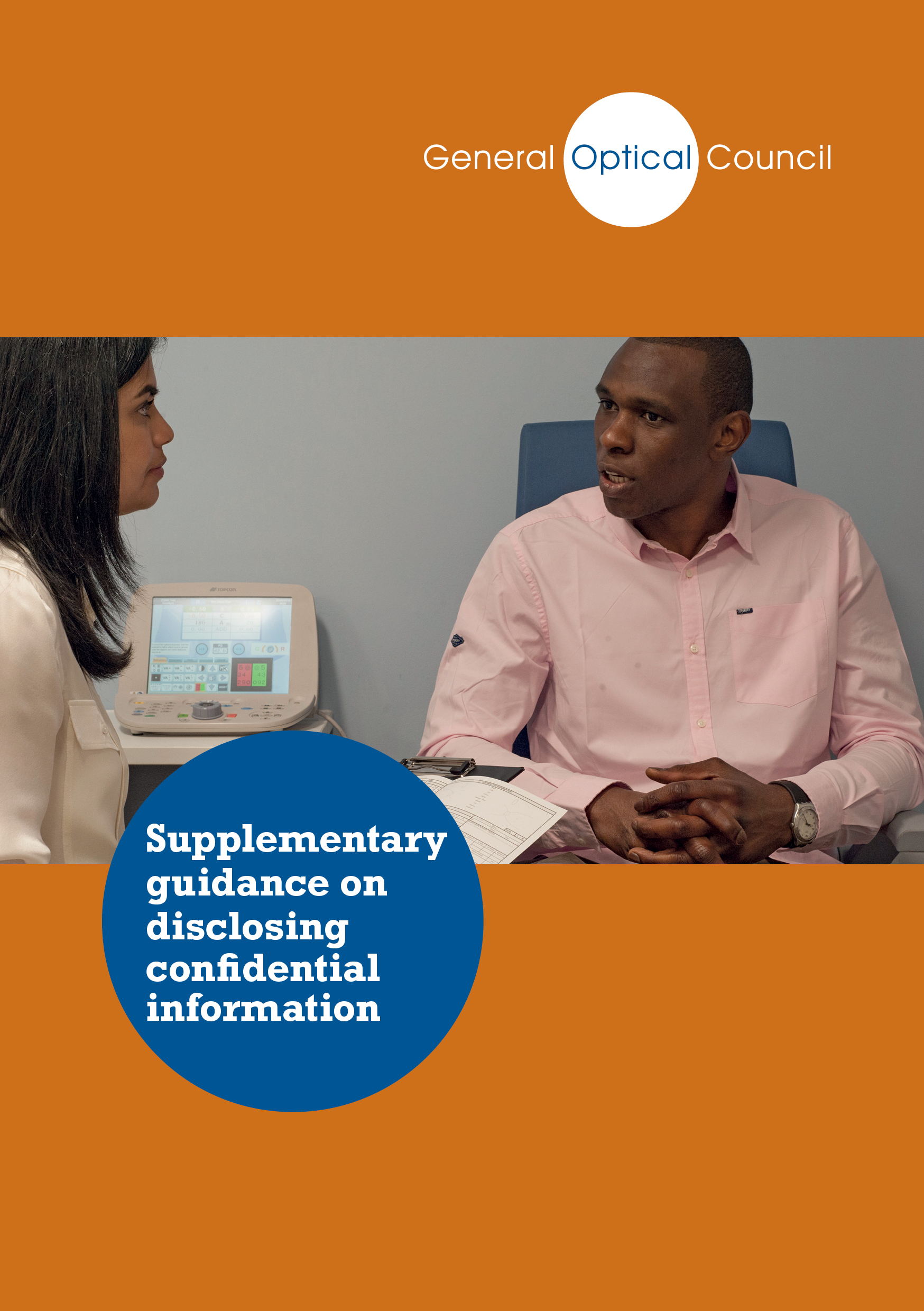GOC publishes guidance on disclosing confidential information
 The General Optical Council (GOC) has today published new guidance on disclosing confidential information about patients, including where patients may not be fit to drive.
The General Optical Council (GOC) has today published new guidance on disclosing confidential information about patients, including where patients may not be fit to drive.
The guidance is designed to provide clarity for optical professionals in situations where they need to consider whether to disclose confidential information to ensure the protection of patients and the public. It does not create new requirements or give legal advice, and the GOC advises it be read alongside the Standards of Practice for Optometrists and Dispensing Opticians or the Standards for Optical Students.
The guidance comes as a result of research, commissioned by the GOC, which showed that registrants found confidentiality to be a complex and confusing area, especially in relation to what to do if a patient’s eyesight is no longer adequate to drive.
The Vision and Driving research showed that 72 per cent of registrants would not feel comfortable informing the Driver and Vehicle Licensing Agency (DVLA) or the Driver and Vehicle Agency (DVA) if the patient could not, or would not, do it themselves. More than half (56 per cent) said it was difficult to balance patient confidentiality with their duty to protect the public from harm.
In response, the GOC drafted guidance on disclosing confidential information about patients which was consulted on from March to June 2019. There was a positive response from registrants, with 84 per cent of individual registrants stating that it would help them to understand when and how to apply their professional judgement to override patient confidentiality to protect the public from risk of harm.
Marcus Dye, Director of Strategy, said: “We’ve listened to registrants’ feedback from both the research and consultation in order to develop new guidance which more clearly sets out our expectations of registrants’ responsibilities for disclosing confidential information in the public interest. We know the area of vision and safe driving is a particularly difficult one for registrants, so we’ve included a flowchart in the guidance to provide them with more clarity on what to do if a patient’s vision is no longer adequate to drive.
“We hope the guidance will give registrants the confidence to decide when to override confidentiality to ensure public protection,” Marcus added.
Commenting, ABDO president, Clive Marchant, said: “ABDO welcomes this guidance, which provides support for our members and the wider profession to act in the best interest of patients and the wider public when managing confidential information in line with patient/public safety.”
To read and download the guidance, click here.